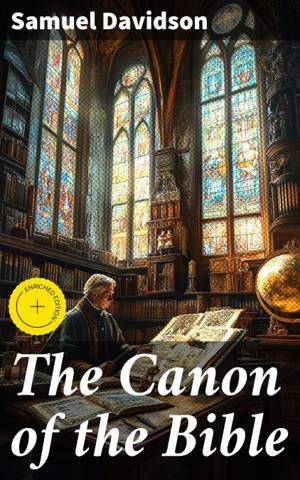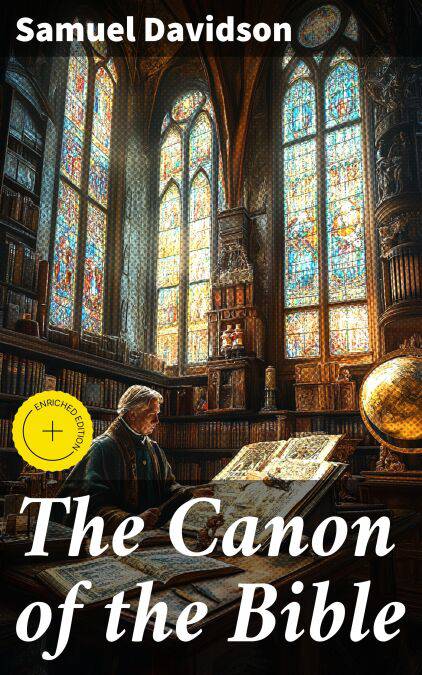
- Retrait en 2 heures
- Assortiment impressionnant
- Paiement sécurisé
- Toujours un magasin près de chez vous
- Retrait gratuit dans votre magasin Club
- 7.000.0000 titres dans notre catalogue
- Payer en toute sécurité
- Toujours un magasin près de chez vous
The Canon of the Bible EBOOK
Enriched edition. Unraveling the Sacred Texts: A Scholarly Journey through Biblical Canonization
Samuel Davidson
Ebook | Anglais
1,99 €
+ 1 points
Description
In "The Canon of the Bible," Samuel Davidson embarks on a thorough investigation into the origins and development of the biblical canon, examining how various texts were chosen and deemed sacred within the Christian tradition. Davidson employs a critical and analytical literary style, which reflects the scholarly rigor of the 19th century, marked by a commitment to historical accuracy and theological depth. The work situates itself within a broader discourse on biblical criticism, challenging prevailing notions of divine inspiration and exploring the socio-political contexts that influenced the canonical process. Samuel Davidson, a prominent biblical scholar of his time, was deeply engaged with critical methodologies and the historical reliability of scripture. His extensive background in theology and his candid explorations of scriptural texts likely informed his motivation to write this book. Davidson's work resonates against the backdrop of the Enlightenment's intellectual currents, where questions surrounding the authenticity of religious texts gained prominence, reflecting his own critical approach and desire for scholarly rigor in biblical studies. For readers seeking a deeper understanding of the complexities behind the biblical canon, Davidson's "The Canon of the Bible" is essential. It not only offers rich historical insights but also invites reflection on the nature of scripture and religious authority. This book is highly recommended for theologians, historians, and anyone with a keen interest in the intersection of faith and scholarship.
In this enriched edition, we have carefully created added value for your reading experience:
- A succinct Introduction situates the work's timeless appeal and themes.
- The Synopsis outlines the central plot, highlighting key developments without spoiling critical twists.
- A detailed Historical Context immerses you in the era's events and influences that shaped the writing.
- A thorough Analysis dissects symbols, motifs, and character arcs to unearth underlying meanings.
- Reflection questions prompt you to engage personally with the work's messages, connecting them to modern life.
- Hand‐picked Memorable Quotes shine a spotlight on moments of literary brilliance.
- Interactive footnotes clarify unusual references, historical allusions, and archaic phrases for an effortless, more informed read.
In this enriched edition, we have carefully created added value for your reading experience:
- A succinct Introduction situates the work's timeless appeal and themes.
- The Synopsis outlines the central plot, highlighting key developments without spoiling critical twists.
- A detailed Historical Context immerses you in the era's events and influences that shaped the writing.
- A thorough Analysis dissects symbols, motifs, and character arcs to unearth underlying meanings.
- Reflection questions prompt you to engage personally with the work's messages, connecting them to modern life.
- Hand‐picked Memorable Quotes shine a spotlight on moments of literary brilliance.
- Interactive footnotes clarify unusual references, historical allusions, and archaic phrases for an effortless, more informed read.
Spécifications
Parties prenantes
- Auteur(s) :
- Editeur:
Contenu
- Nombre de pages :
- 200
- Langue:
- Anglais
Caractéristiques
- EAN:
- 4064066102890
- Date de parution :
- 15-03-20
- Format:
- Ebook
- Protection digitale:
- Digital watermarking
- Format numérique:
- ePub

Seulement chez Librairie Club
+ 1 points sur votre carte client de Librairie Club
Les avis
Nous publions uniquement les avis qui respectent les conditions requises. Consultez nos conditions pour les avis.





